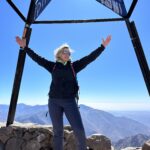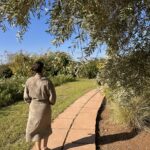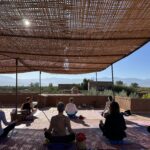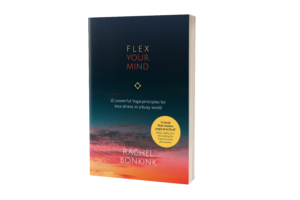This is part ten of a series exploring the ten principles of yoga philosophy, also known as the yamas and niyamas. In this series of blog posts, we explore how we can bring this fascinating ancient wisdom into our daily lives.
Whether or not you practice yoga or not is not very important. These principles are all about making this world, an even better place to live in.
Svadhyaya, know Thyself
Svadhyaya is commonly translated as ‘self-study’ or study of spiritual texts.
This fourth niyama is one of my personal favorites to explore.
In my role as a life coach, I’m passionate about understanding human behavior.
And, also in my personal journey, it’s so darn interesting to understand:
- why I keep making the same mistakes,
- meet the same kind of people,
- end up in the same situations,
- fall in love with the same type of people,
- etc.
In both yoga and coaching, the emphasis is on creating more awareness.
Awareness and understanding about why we do the things we do.
We explore how our own actions influence the actions of others and dive a little deeper into connecting with our true Self.
Self-inquiry
How often do you take the time for self-inquiry with these very simple questions?
- Who am I?
- Why do I do the things that I do?
- Am I sloppy or correct?
- Am I rather happy or rather unhappy?
- What makes me happy?
- Where do I go when things get difficult?
- What do I do when things get difficult?
Psychologist, Chloe Madanes and her work in Human Needs Psychology often come by in my life coachings. She describes 6 basic human needs that all humans have and consciously or unconsciously try to fulfill.
There is a world of wisdom that unfolds when we know which human needs drive us.
The six basic needs which are universal and that we all try to fulfill in varying degrees are:
- Certainty. The need for security, stability, and reliability.
- Variety/Uncertainty. The need for change, stimulation, and challenge.
- Significance. The need to feel acknowledged, recognized, and valued.
- Love and Connection. The need to love and to feel loved, and to feel connection with others.
- Growth. The need to grow, improve and develop, both in character and in spirit.
- Contribution. The need to give, to help others, and to make a difference.
Discovering which needs are most important to us and how we try to meet those needs is an essential step in svadhyaya.
Just a quick check here and now!
Have another look at the six needs mentioned above.Which needs are most important for you?
What do you do to meet those needs?
Why bother with these kind of questions?
Too many people start out by just willing themselves to do something whilst in the back of their minds, they just know it is not going to happen.
Recognize any of this?
As of Monday, I shall never eat chocolate again.
The beginning of next week means that I will meditate every single day!
I will put my phone away, 2 hours before bedtime.
You have the full intention of doing (all) this, and still… NOTHING happens.
We have to know ourselves and understand what motivates us and what leads us to break commitments. Creating new habits is one of the hardest things to do!
Habits however, are the foundation of accomplishments.
Knowing yourself is essential to making habits and the key to creating the life you want.
Life is an adventure!
Svadhyaya is about learning.
Why not make it a habit to learn something new every single day!
As a kid, I was a bit goofy, as I would read as many books as I could. I would go to the local library and take the books that I wanted to read but, I also added one totally random book. I just went passed the shelves and took one out. Having no idea what it was about or who wrote it.
And, I still do that! As I travel a lot and spend a lot of time in airports and airplanes, I go into the book kiosks, and just pick a random book. Sometimes, that ends up in being something really interesting, other times, not so much.
But, it’s fun. I love to learn and expand my knowledge.
What is also very interesting is to meet people who have very different ideas on yoga, politics, and life. It’s a wonderful exercise in non-judging (ahimsa) and being as open and truthful (satya) as possible.
Forget the past tense when I wrote that I ‘was’ goofy in my childhood as loads of people still think I am. Yippee!
For example, whenever I see a vegetable in the grocery store (or souk) that I don’t know: I’ll buy it.
Having no clue what to do with it but it’s an adventure to experiment. There’s always mighty Google to double check that we’re not eating the peel and throwing away the good stuff (been there, done that, not nice, check Google!).
Fun, enjoying, learning: training our beginner’s mind and fully realizing that the more you learn, the more you realize how much you don’t know (I non-violently stole and tweaked this quote from A. Einstein).
Meditation
What if we would take this all a little step further and check out the Self with a capital ‘S’.
Zooming in on the Self as in our ‘Divine Self’.
Understanding our Self because we start understanding what our practice is all about.
We observe the fluctuations of the mind, without any intellectual interpretation or judgment.
In meditation, we need perseverance (tapas) to continue observing, we examine (svadhyaya) what comes up and we will slowly come ‘home’ to what has always been there here and always will be there (ishvara).
I’m just giving you a little teaser here, indicating that there is much more to explore when diving deeper into the true meaning of the yamas and niyamas. Very happy to zoom in more in my book!
How do you feel in your yoga class?
Svadhyaya in your yoga class can mean that you observe and examine the effects that the asanas have on your body and mind.
How do you feel?
As Paul Grilley teaches in his yin yoga classes, taking the time to observe the rebound of a pose. To be aware of the quality of the energy in your body and mind.
Adding the breath to your observations. The breath is always there.
Examining yourself as if it is the very first time that you had a closer look at your own breathing.
What is physically moving when you are breathing in and what is physically happening when you are breathing out?
Are there different phases in your inhalation, how about your exhalation?
Observing the breathe can never be boring as every single breathe is different.
In some traditions they say that we all have a certain number of breaths to take in our lives.
So, better breathe slowly? Observe, examine, check in.
To DO: The perfectionist’s lie
If you are serious about reaching your full potential? In that case, I have a little assignment for you.
Lots of people shout out what Brendon Burchard calls “the perfectionist’s lie” as the ultimate excuse for procrastination.
You don’t understand, Rachel, ‘I am a perfectionist” and “I want things to be absolutely perfect before launching my new website, book, blog, etc“.
As it’s always very nice to blame things that are actually our own failing, they blame their own personality for not getting on with things.
If they would do some self-inquiry and be truthful to themselves and the world, the real reason for procrastination is more likely to be fear. Not being reading to face the fear of judgment or the fear of rejection.
Not ready to realize that you have been plain lazy and distracted, not being in control of your time and scattered all over the place instead of being focused.
Being aware that you are not moving forward because you are afraid.
And there is absolutely nothing wrong with fear, not even with being terrified, as long as it doesn’t hold you back on the things that you want to accomplish.
Get on with it
The invitation is there to have a look at what you are procrastinating right now and to take acute leadership of it.
Get on with it and leave perfection for the second time around.
Get to work, for real and take back your control. Make a diffence in this world and inspire people with your action!!!
Good luck!
I hope you liked what you read about svadhyaya !
If you would like to read more about the niyamas:
Saucha (Purity)
Santocha (Contentment)
Tapas (Self-Discipline)
Ishavara Pranidhana (Surrender)
Namaste,
Rachel
Rachel Bonkink holds a Masters Degree in Commercial Sciences, has studied Traditional Chinese Medicine and thrives on teaching yoga and yoga philosophy classes. She has been a life coach for over 10 years and loves spending time by the beach in Morocco. She’s the owner of Revealing Vajra, a leading yoga retreat company. In the past seven years Rachel has organized, marketed and hosted over 60 of her own world wide yoga retreats. At the moment, she is writing a book on how to bring the yoga philosophy into daily life.








Leave a comment